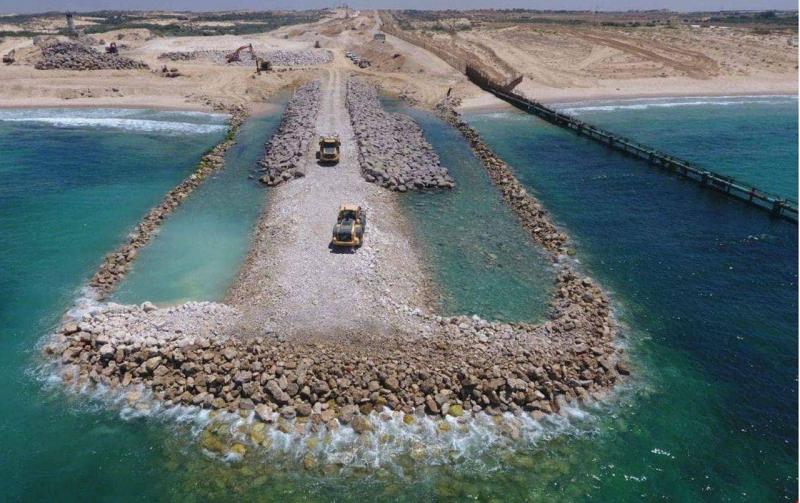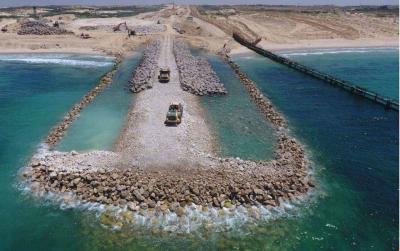Kuwaiti Minister of Public Works, Nora Al-Musha'an, visited the construction site of the "Mubarak Al-Kabir" port project on Bubiyan Island, in the latest official indication that the Gulf state is committed to the project, which Iraq opposes. The Ministry of Public Works stated in a press release that Al-Musha'an was accompanied by a technical delegation of experts and engineers specializing in mega-projects from China and Kuwait, as well as the Chinese ambassador to Kuwait.
According to the statement, the visit activates the memorandum of understanding related to the establishment of the Mubarak port project, signed between Kuwait and China during the visit of the Emir of the country, Sheikh Mishal Al-Ahmad Al-Jaber Al-Sabah, to Beijing last September. Kuwait has not officially announced the resumption of construction work on the Mubarak port located on Bubiyan Island near Iraq, a project that Baghdad has long opposed. However, the newspaper "Al-Qabas" claims that the Mubarak port project "is at the forefront of the Kuwaiti development and economic scene as actual implementation is set to resume, taking practical and realistic steps towards this direction, positioning it among the developmental projects that Kuwait relies on in the upcoming phase."
The construction work on the massive Mubarak port project has been progressing slowly for years without completion, due to political tensions with Iraq. Recent Kuwaiti moves came after the Iraqi Supreme Court annulled the Khour Abdullah agreement that regulates navigation between the two countries, along with Baghdad signing a quadripartite agreement for the "Development Road" project with Turkey, the UAE, and Qatar, on the sidelines of Turkish President Recep Tayyip Erdogan's recent visit to Baghdad.
What is Mubarak Port? In April 2011, Kuwait laid the foundation stone for the construction of "Mubarak Al-Kabir" port, estimated to cost around $1.1 billion on Bubiyan Island, with completion expected in 2016, noting that the announcement of this mega project was first issued in 2007. This announcement sparked anger from neighboring Iraq, which believes that the location of the port on Bubiyan Island will hinder its access to the Gulf waters, its only outlet to the sea.
In July of the same year, Baghdad officially requested Kuwait to halt work on the Mubarak port after a political debate between the two countries, but the Gulf state officially rejected Iraq's request. In 2013, the two countries signed an agreement to regulate maritime navigation in Khour Abdullah, which connects Iraq with the Gulf waters. The agreement stipulates a proportional division of Khour Abdullah's waters between the two countries, based on United Nations Security Council Resolution "833" issued in 1993, which redrew borders following the Iraqi invasion of Kuwait.
Some Iraqis object to this agreement because they believe it grants Kuwait rights to regional waters within Iraqi territory, obstructing maritime trade at their limited ports and undermining the Great Faw port project that had reached advanced stages of completion. However, the Iraqi Supreme Court decided last September that the Khour Abdullah agreement regulating maritime navigation in the waterway separating Kuwait and Baghdad was unconstitutional. The court justified its decision by citing violations of Article (61/Fourth) of the Constitution of the Republic of Iraq, which states that the ratification of treaties and international agreements is organized by a law passed by a two-thirds majority of the members of the Council of Representatives.




